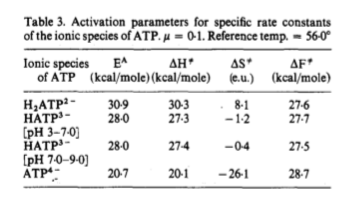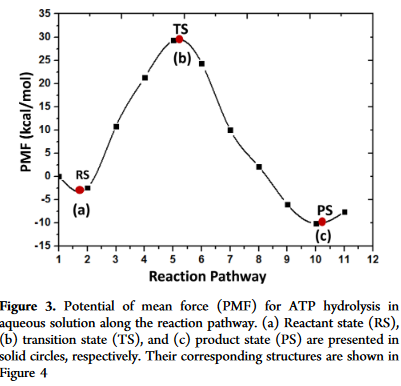By ATP hydrolysis, I mean the chemical reaction: ATP + Water -> ADP + Pi. Focusing only on the reaction, this is a nucleophillic substitution reaction, most likely occuring in SN2 mechanism. But so far, I haven't found a single paper reporting the energy of activation of this reaction uncatalyzed. So, does anyone actually measured/estimated the activation energy of uncatalyzed ATP hydrolysis reaction?
-
2$\begingroup$ I have searched the literature and found an answer to your question, which I have posted. However in future I suggest questions of this type should be posted to SE Chemistry as it really has no biological content (relevance yes, content no) and that SE site has more users who are specialists in this area. $\endgroup$– DavidCommented May 11, 2023 at 12:01
-
$\begingroup$ @Chris and I shave provided answers. If you have a problem with them you should say so, otherwise you should accept one (his is more recent). That’s how this site works. $\endgroup$– DavidCommented May 17, 2023 at 18:08
2 Answers
The activation energy of ATP hydrolysis at in the pH range 3–9 was determined by Kahn and Mohan in 1974 and found to be 28.0 to 20.7 kcal/mole. At neutrality (i.e. uncatalysed) it would appear to be:
approx. 23 kcal/mole
A subscription is required to access the paper, but I reproduce the key table as fair citation under copyright laws:
I imagine that redeterminations or confirmations have been performed more recently and can be found by searching the chemical, rather than biological, literature. (And @Chris would seem to have confirmed this in his answer.)
The 2014 paper of Wang and colleagues found the activation energy of ATP at 32.5 kcal/mol. See the reference for details. The image is figure 3 from the reference.
Reference:


